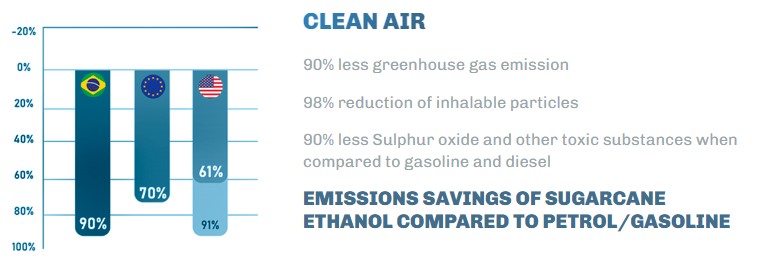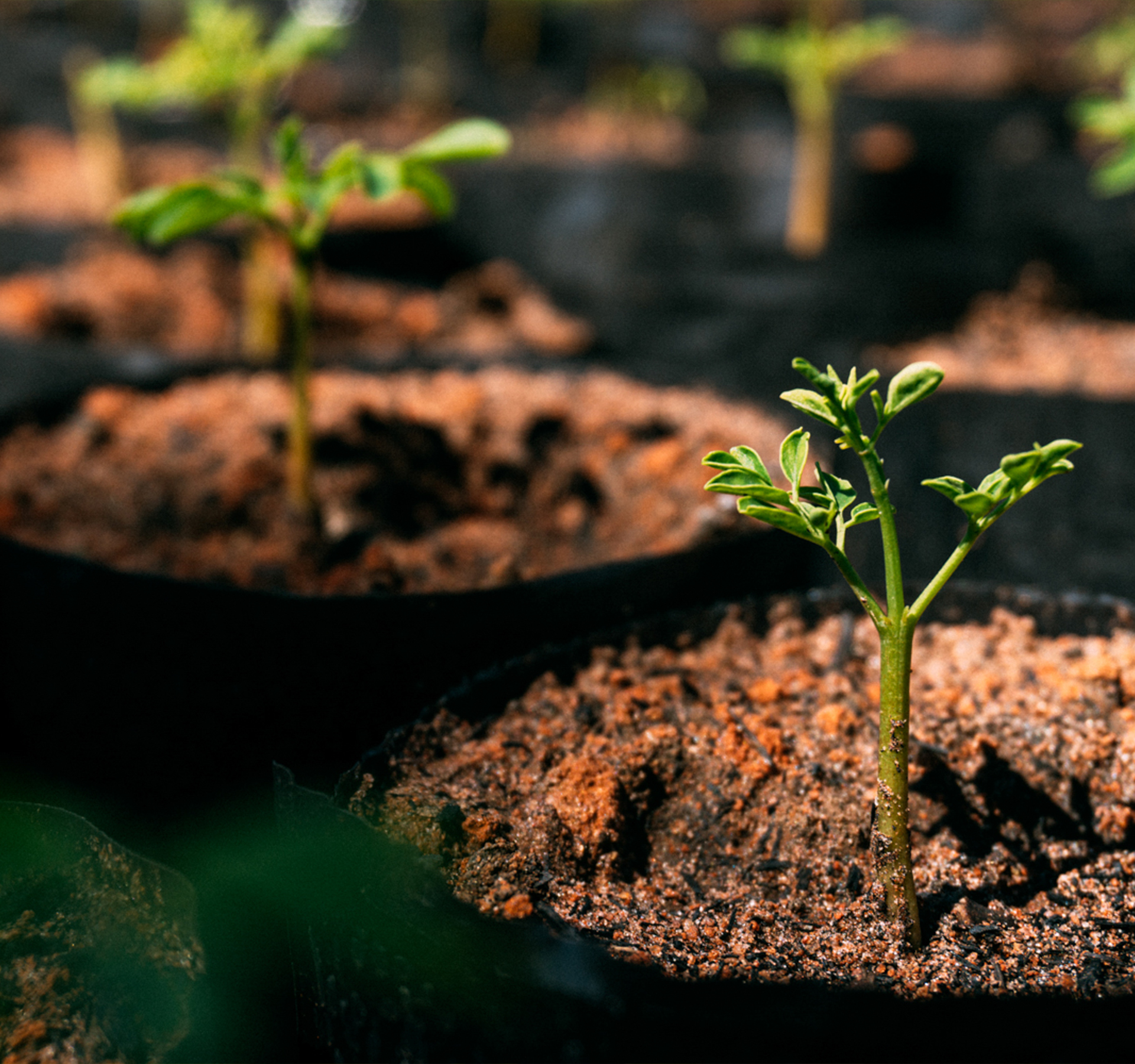DECARBONIZATION - BRING BACK MY BLUE SKY
Ethanol is the fuel of the present and the future of sustainable mobility. It’s the fuel of transformation. With ethanol, São Paulo’s sky went from grey to blue. Less pollution, more health. And we are ready to support more countries to bring back their blue skies.
Ethanol reduced almost 50% of pollution and improved air quality in São Paulo, a City of 12 million people that now benefit from cleaner air thanks to the major uptake of ethanol in transportation.
Besides that, ethanol emits 90% less CO2 than fossil fuels. The biofuel has saved, since 2003, about 630 million tons of CO2 emissions to the Brazilian skies.We want to share our experience from the City of São Paulo and how ethanol contributed to reducing emissions and improving public health. Ethanol has transformed the quality of life of the brazilians. And can do the same for other cities around the world.


ETHANOL AS A SOLUTION FOR SUSTAINABLE MOBILITY
Among biofuels, sugarcane ethanol has the world’s lowest carbon footprint.
A clean, affordable and low-carbon biofuel that can be blended with petrol/gasoline and provides a significant reduction in Greenhouse Gas (GHG) emissions to fight global warming. One of the most serious challenges of this century.

